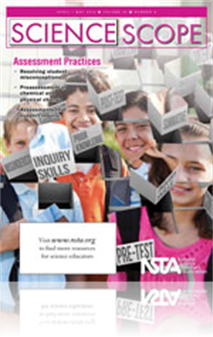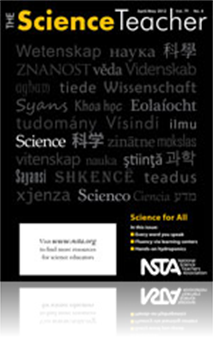All Resources
Journal Article
Editor's Roundtable: Puzzled by Assessment?
Science Scope’s editor shares thoughts regarding the current issue....
Journal Article
Scope on Safety: OSHA's Newest Lab Resources
This column shares safety information for your classroom. This month’s issue discusses OSHA's new publication Laboratory Safety Guidance....
Journal Article
Science 2.0: The NSTA Learning Center
This column shares web tools that support learning. This month’s issue focuses on the electronic portal: The NSTA Learning Center....
Journal Article
Editor's Corner: Science for All
The Science Teacher’s editor shares thoughts on the current issue....
Journal Article
The Green Room: Tap Local Resources for Environmental Education
This column focuses on making your teaching more environmentally friendly. This month’s issue discusses local, state, and regional resources available for sustainability education inside the classroom....
Journal Article
This article highlights a long-term inquiry lesson on sustainability and plant biology....




